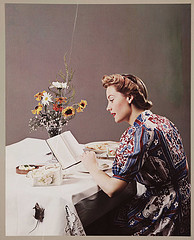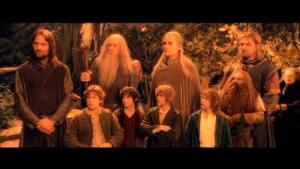I had an epiphany the other day. I realized that some of the best YA books I’ve read lately aren’t even published. Yes, that’s right, and I’m not even talking about ARCS here. I’m talking about unpublished, unagented gems of literary genius: the books I’m beta reading.
If you’re part of the writing community, you are acquainted with the term “beta reader”. However, if you’re not, you may be wondering what in the world a “beta reader” is. I’ll be honest when I was first introduced to the term, the first thought that flashed in my mind was the fish.
A Beta reader is someone who reads and critiques your novel. Sure, you might have read it a hundred times with red pen in hand, but a beta reader will read it objectively. They will be subjective where you cannot. After all, our WIPS are like children. We love them, and we don’t want to think badly of them. We may not see how this character isn’t necessary or how this scene drags. So, what do you do? You call in a beta reader…or two…or maybe even ten! They’ll make your wip nice and pretty for perspective agents and editors.

Beta readers are great for fact checking, too. They’re like script supervisors on movies. Maybe you have Character A drinking a coke in a scene and then five paragraphs later they’re hopping in the car. Wait, where did the drink go? Or maybe Character A was talking to Character B, but you call them Character C’s name by accident. Hey, it happens. Ever seen the “goofs” section on the Internet Movie Database? It happens in big budget blockbusters, and it happens to writers too.
I mean what would Harry Potter have been like if someone let this mistake happen in makeup!

There are two types of beta reading. One is just a content read. Maybe you have a pivotal scene that you’re not sure works, or maybe you want to know if a character is believable or not. Beta readers will be able to answer these questions for you. They might also find little things you weren’t even expecting.
Another type is line-by-line edits where you edit not only for content, but for grammar as well. Yep, I used the “g” word—the word that exercises fear in the hearts of many. When you have line-by-line edits, beta readers can correct spelling, punctuation, and proofreading errors, and awkward wording or sentence structure. Even if you’re a “grammar god” with eagle eyes, you’re going to miss things—you’re only human. So, go ahead and bring another set of eyes in to check for mistakes.
Here’s what a couple of our OPWFT writers and OPWFT thread contributors feel about beta readers:
“They are like a lifeline to reality. You’re thinking you’ve got either crap or something totally amazing, but your eyes are the only pair that have seen your WIP. You need more than just your opinion to confirm or deny your own.”
“They also catch a lot that you don’t. In your mind, it’s all clear. You know the relationships and the events that occur b/c they’re all in your head playing like a movie. Others may not get it. You might need to clarify some things that they can identify.”—Jamie
“Having beta readers is like having editors before getting the real thing.”—Becca
“For me, beta reading involves treating the novel I’m reading the same as a book I’ve purchased from Barnes and Noble. Regardless of whether or not the writer is my friend, I’m going to give them an honest critique even if I have to suggest several revisions.”—Stephanie
“Beta reading opens my eyes to all the mistakes I make on my manuscript, and it’s always helpful to have another set of eyes, or twenty, on your work.”—Annie
Me as a Beta Reader:
“Pretty much, I look for things that the writer has asked me to look for. If they just want general comments on flow, characterization, plot, etc., then I only comment unless I find a blaring grammar error. If they ask for me to pay attention to grammar, then I basically copy edit. Usually, it’s a mix of the two, and I find that works well. (I’ve only beta-read parts of two so far, though)”
Me as the Writer:
“I’d probably look for a combo of what I just said above. Basically, I’d want someone to be brutally honest about if it’s any good, where there are slow places, if things are written well, show/tell issues, etc. I don’t have any experience with fiction, so in a beta, I’d be looking for someone who could add kind of an expertise, I guess. PLUS, I’d want to know if it’s relevant to the YA market (if YA, of course).—Laura
So, let the beta reading begin!

 When I was thirteen, I had three options when it came to YA: Sweet Valley High, The Outsiders, and Judy Blume (but not Forever because that was the naughty Blume book you couldn’t find in the school library).
When I was thirteen, I had three options when it came to YA: Sweet Valley High, The Outsiders, and Judy Blume (but not Forever because that was the naughty Blume book you couldn’t find in the school library).









